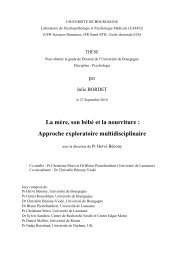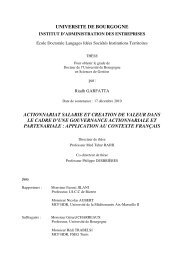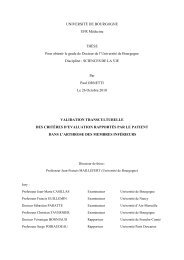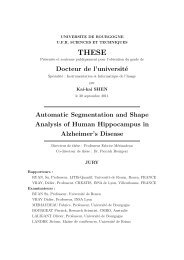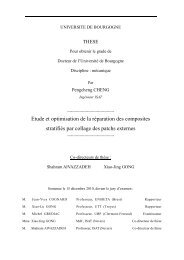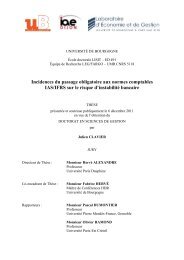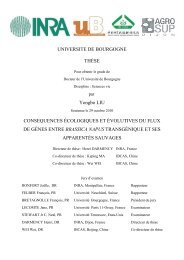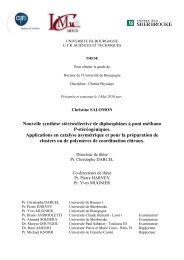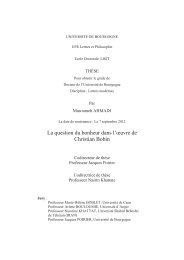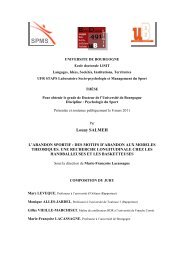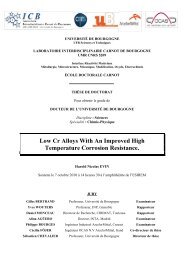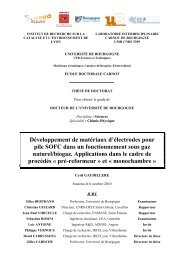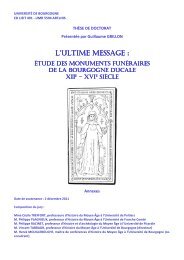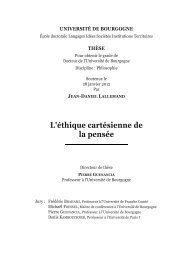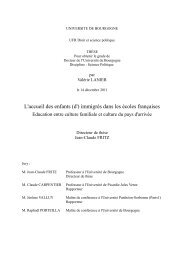Higher education in Asian countries and the role of international ...
Higher education in Asian countries and the role of international ...
Higher education in Asian countries and the role of international ...
Create successful ePaper yourself
Turn your PDF publications into a flip-book with our unique Google optimized e-Paper software.
40<br />
translate <strong>in</strong>to loss <strong>of</strong> powers if <strong>in</strong>ternational cooperation is l<strong>in</strong>ked to relatively superior ga<strong>in</strong>s for<br />
o<strong>the</strong>r states (Grieco, 1993). IGOs can only contribute better to <strong>in</strong>ternational development if<br />
powerful or dom<strong>in</strong>ant state/s is ready to cooperate by becom<strong>in</strong>g a part <strong>of</strong> that organization <strong>and</strong><br />
share <strong>the</strong> ga<strong>in</strong> or loss with o<strong>the</strong>r participat<strong>in</strong>g states, which <strong>in</strong> reality does not exist.<br />
3.4.2 Liberalism<br />
Liberalism is a political <strong>the</strong>ory founded on <strong>the</strong> natural goodness <strong>of</strong> humans <strong>and</strong> <strong>the</strong> autonomy <strong>of</strong><br />
<strong>the</strong> <strong>in</strong>dividual, <strong>and</strong> favor<strong>in</strong>g civil <strong>and</strong> political liberties <strong>and</strong> protection from arbitrary authority<br />
(The American Heritage Dictionary). Basically it is a political <strong>and</strong> economic doctr<strong>in</strong>e: human<br />
rights, freedoms <strong>of</strong> <strong>the</strong> <strong>in</strong>dividual <strong>and</strong> limited powers <strong>of</strong> government are good. Immanuel Kant<br />
<strong>and</strong> Baron De Montesquieu were <strong>the</strong> pioneers who applied liberalism <strong>the</strong>ory to underst<strong>and</strong><br />
<strong>in</strong>ternational politics.<br />
Liberalists have a simple <strong>and</strong> positive idea that people, <strong>countries</strong>, <strong>and</strong> organization can work<br />
toge<strong>the</strong>r for progress, prosperity <strong>and</strong> peace. Liberalist views <strong>in</strong>ternational relations as<br />
cooperative <strong>and</strong> constructive efforts between <strong>countries</strong> <strong>and</strong> governments to help disadvantaged<br />
nations <strong>and</strong> to promote global welfare. Modern liberalism supports both state <strong>and</strong> non-state<br />
relations to promote global peace <strong>and</strong> improve <strong>the</strong> political, economic <strong>and</strong> social situations<br />
around <strong>the</strong> world (Burchill, 2001). Accord<strong>in</strong>g to liberalism <strong>the</strong>ory organizations play<br />
constructive <strong>and</strong> effective <strong>role</strong>, at national <strong>and</strong> <strong>in</strong>ternational levels, <strong>in</strong> shap<strong>in</strong>g <strong>and</strong> <strong>the</strong><br />
<strong>in</strong>ternational l<strong>and</strong>scape <strong>and</strong> to achieve mutual goals. Fur<strong>the</strong>rmore IGOs harness cooperation<br />
between states, which is helpful <strong>in</strong> achiev<strong>in</strong>g IGOs goals. Likewise liberalist also give due<br />
importance to <strong>in</strong>dividuals as <strong>the</strong>y may <strong>in</strong>fluence states <strong>and</strong> organizations. Liberalists ma<strong>in</strong>ta<strong>in</strong><br />
that IGOs work with o<strong>the</strong>r <strong>in</strong>ternational <strong>in</strong>stitutions also this promotes network<strong>in</strong>g <strong>and</strong><br />
collaboration that ultimately streng<strong>the</strong>n IGOs <strong>and</strong> help to achieve common goals.<br />
3.4.3 Idealism<br />
Idealists believe <strong>in</strong> <strong>the</strong> effectiveness <strong>of</strong> ideas. The philosophy <strong>of</strong> idealism is based on <strong>the</strong> <strong>the</strong>ory<br />
that <strong>the</strong> external world must be understood through consciousness not through experience. The<br />
idealist believes that thoughts are prior to actions, <strong>and</strong> that <strong>the</strong> mental or cognitive world is more<br />
important than <strong>the</strong> material world. So <strong>in</strong> <strong>the</strong> realm <strong>of</strong> idealism <strong>the</strong> reality exists only <strong>in</strong> <strong>the</strong> m<strong>in</strong>d<br />
whereas <strong>the</strong> experience is considered as a mental activity. This proposition is <strong>in</strong> direct contrast to<br />
<strong>the</strong> <strong>the</strong>ory <strong>of</strong> realism, which holds that th<strong>in</strong>gs exist <strong>in</strong>dependently <strong>of</strong> our perception <strong>and</strong> reality is



